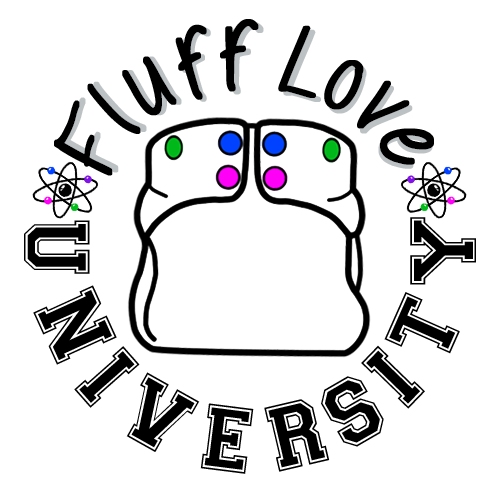While you wait for wash day, what can you do to keep your house smelling fresh without the diaper genie you’d use if you had disposables? Let’s go over the basics of dirty diaper storage from bum to basket to washer.
 Navigation
Navigation
- The Fluff Love Community
- About Us!
- Fluff Love University Campus Store
- We <3 Fluff Love - Blog and Website Buttons and Banners
- Success Stories!
- Fluff Love + Lil Helper Cloth Diapers
- FLCDS Community Outreach
- Get Local! (In the USA)
- Sitemap
- Join the Cause! Spread the Joy of Clean Cloth
- Diaper Rehab Hall of Fame
- Fluff Love Revolution Nonprofit
- Learn About Cloth Diapers
- How to Wash Cloth Diapers
- Troubleshooting
- Special Circumstances
- Cloth Around the World
- Fluff Love en Español
- Agua Dura y Pañales de Tela
- Cómo DECAPAR (“strip”) sus pañales de tela
- Cremas del Pañal y Pañales de Tel
- Lavando en Agua Blanda
- “Detergente” casero: lo malo, lo peor, y lo feo
- Porque le decimos NO al detergente Charlie’s Soap
- Lavando Pañales de Tela con una Cubeta y Destapador
- ¡Mi bebé está enfermo/a! ¿Tengo que desinfectar mis pañales?
- Cómo Lavar Pañales de Tela en una Lavadora de Alta Eficiencia (HE)
- Cómo Lavar Pañales en una Lavadora Estandar
- Referencia Rápida de Información Esencial
- Cloth Down Under
- Cloth in Canada
- Fluff Love en Español
- Sourced Science
- Search